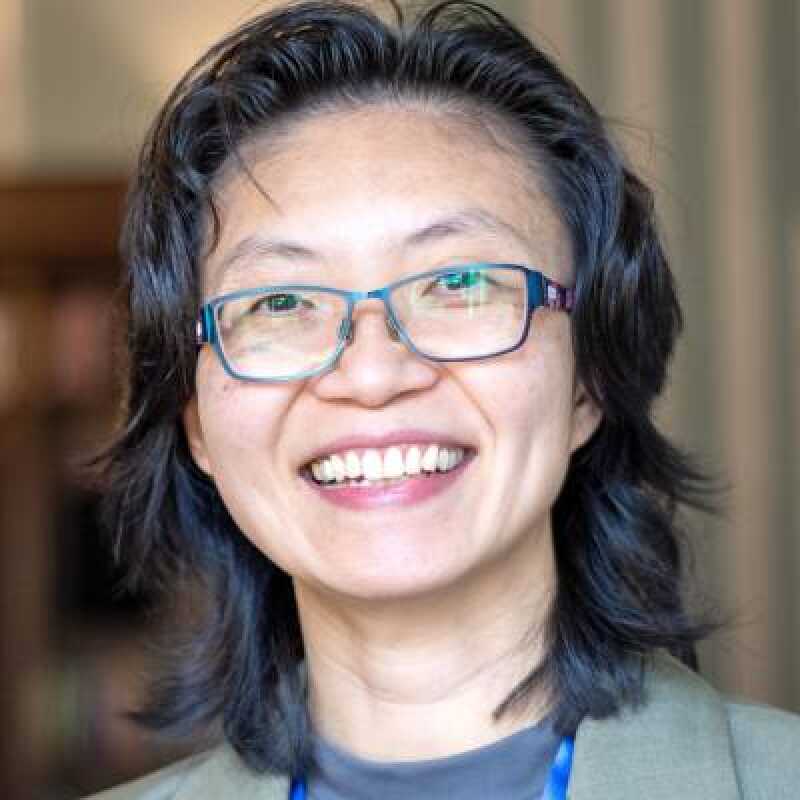- University of Kent
- School of Social Sciences
- People
- Professor Joy Y. Zhang
Professor Joy Y. Zhang


Joy Y. Zhang is a sociologist with a first degree in medicine. She is the Founding Director of the Centre for Global Science and Epistemic Justice. She is an internationally leading expert on the transnational governance of scientific risks, specializing in emerging life sciences that affect both humans and the environment.
Her research focuses on the erosion of epistemic boundaries and the rise of cosmopolitan identities formed by changing disciplinary, geopolitical and state-society power relations. Her expertise is in expanding the transnational governance of risk beyond a Western-centric approach and in aligning theoretical frameworks with real-world challenges. Conceptually, her work contributes to sociological theories of risk, cosmopolitanism, decolonisation and subaltern politics. She has also undertaken empirical studies on emerging life sciences, food movements and environmental politics, with a primary focus on four major scientific powers: China, India, the UK, and the US.
Zhang has initiated several landmark programmes, including the BioGovernance Commons in 2021, the founding of GSEJ in 2022, and in 2025, O.D.E.SS.I.—a global ‘odyssey’ for public engagement with the life sciences. Rooted in five core principles—Openness, Deliberation, Enabling, Sensibility and Sensitivity, and Innovation—O.D.E.SS.I. seeks to promote inclusive and future-facing dialogues on emerging science. Since its inception, GSEJ has convened events with participants from 24 countries, including co-hosting a UK–India G20 meeting on biogovernance and science diplomacy in New Delhi. Zhang’s policy recommendations on global biodata governance were featured in the 2024 Think7 communiqué presented to the G7 presidency.
Before joining SSPSSR, Dr Zhang worked at l’École des Hautes Études en Sciences Sociales (EHESS) in Paris and the London School of Economics and Political Science (LSE), where she also obtained her PhD in Sociology in 2010 and MSc in 2006. Previous to that, she graduated from Peking University Health Science Centre, majoring in clinical medicine. Dr Zhang is a Visiting Fellow at the Global Biopolitics Research Centre, Kings College London, an Affiliated Researcher of le Collège d’Etudes Mondiales, Fondation Maison des sciences de l’homme (FMSH), France. She is also a member of the Human Practices Committee of the International Genetically Engineered Machine (iGEM) competition.
Dr Zhang has always tried to have a flavour of different lives when she can. She once worked as a journalist and a columnist and she obtained an accounting certificate issued by China’s Ministry of Finance. Most importantly, she’s keen on exploring artistic tools in exploring bioethical and sociological questions. To date, she has had three solo photographic exhibitions (two of which were sponsored by Canon, China). She loves being a sociologist, but if you ask her what her ‘dream job’ would be, it’s being an art restorer.
She has obtained individual research grants from the British Academy, the British Council, the Economic and Social Research Council, the Wellcome Trust, the Independent Social Research Foundation in the UK, the National Science Foundation and the Department of State in the US, as well as la Fondation Maison des Sciences de l’homme in France. She has also been interviewed by more than 30 media outlets, including the Science, Nature, MIT Technology Review, ABC (Australia), BBC, CNN, El Pais (Spain), ARD German Radio, South China Morning Post, the Associated Press and Statnews.
We are living in a global risk society, which has complicated the legitimising devices for scientific policies and has rendered social space for subaltern actors to develop new modes of intervention. Prof Zhang has established her expertise in the transnational governance of emerging science in the nexus of these themes. Prof Zhang emphasises aligning theoretical frameworks with real-world challenges. She is frequently interviewed by global media and advises leading research and policy institutions in Europe and Asia.
Currently, she examines the social, ethical, and regulatory issues arising from engineering biology across the sectors of environment, critical minerals, agriculture, and biomedicine through the following projects:
1) She is the Responsible Research and Innovation lead for Engineering Biology Mission Hub for Environmental Processing and Recovery of Metals (ELEMENTAL) (BBSRC, 2024- 2029)
2) She is the Principal Investigator for Futuring Biological Commons: Promoting Response-ability among Stakeholders of Scientifically Enhanced Plants (ARIA, 2025-2028)
3) She is the Principal Investigator for Care-Full Synthesis: Advancing Global Engagement on the Socio-Ethical Implications of Synthesising Human Genomes (Wellcome Trust, 2025-2030)
Prof. Zhang teaches on a number of undergraduate and postgraduate core and specialised modules.
Prof. Zhang welcomes students with interests in the social study of risk, emerging technologies, epistemic injustice, social movement, Global South, engineering biology, synthetic cells, genome editing, health, bioethics, public engagement of science, science policy, science diplomacy, governance, environmental politics or state-society relations.
Membership:
Affiliations
Loading publications...
Showing of total publications in the Kent Academic Repository. View all publications